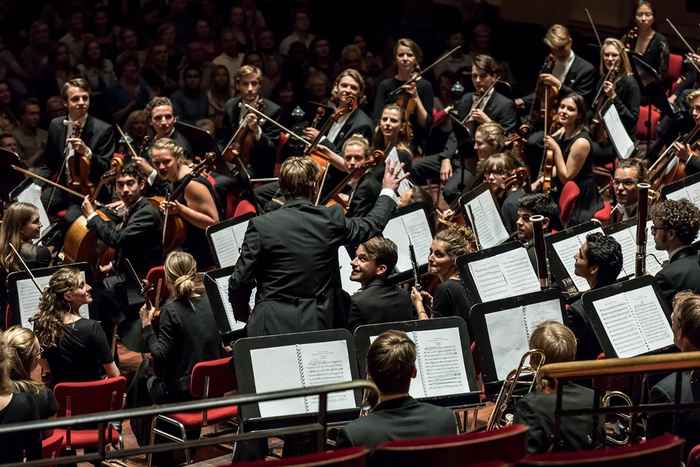Musicians are more vulnerable than ever, but who notices that?
Faculty of Law
19 February 2024

Kurzbauer lives in Amsterdam but grew up in the United States. 'In the US the mantra: “in Europe you are safe as a musician because art is subsidized by governments” was often repeated. Hold that thought, if a right-wing cabinet comes to power, the subsidy dream could be over in a flash.' She realized this all the more when former State Secretary for Education, Culture and Science Halbe Zijlstra enacted dramatic subsidy cuts for cultural institutions in 2012, including the orchestra the Radio Chamber Philharmonic Kurzbauer was part of.
Music is a small world
Examples of orchestral vulnerabilities, especially for freelancers, are ubiquitous. 'A violinist who had been freelancing with the Royal Concertgebouw Orchestra for five years suddenly found herself with no work. Even though Dutch labor law mandates a permanent contract following a fixed number of consecutive contracts, the violinist remained unemployed and filed suit to gain a permanent employment contract. I told her that if you go against the biggest boss in town, you will never work again at that famous orchestra, or for that matter at other orchestras. Our world is a small world.'
Remarkable advice coming from a jurist? Not really. 'The music world works differently,' Kurzbauer explains. To strengthen her research and add voices from the field, she interviewed over 200 musicians in both the United States and the Netherlands. A recurring story is that musicians are willing to perform for next to nothing. 'They perform at Christmas shows with little more than an oliebol as payment. Even when working conditions are bad by any normal standard, they keep going. Their art is their passion. Evert Verhulp, one of my promoters, observed, that's this isn’t by the book. He’s right. It's not legally correct either, but that's the real story in the real world.’
Young versus older musicians
Attempts are being made to bring about change, however. Fair practice laws, for example, require freelancers to earn the same as contracted employees. 'But when money is tight, orchestras nowadays work with talented pre-professionals. Instead of 40-year-old freelancers, they can cut down on costs by hiring ‘academicians’, young musicians who perform for less pay. That's a problem. In dance, you don't have such an age-discrimination issue because more often than not, 40 year-olds have usually retired from center stage. In a recent series of Netherlands Chamber Orchestra performances many freelance string players were noticeably young. Great musicians. However, the older freelancers in their 40s and 50s are sitting at home.'
Does that compromise the quality of an orchestra? 'I dare not say that. Young players contribute a great deal to the orchestral mix. An orchestra is a collective of all sorts of individuals who work together. Technical playing quality counts, just as much as collegiality. I think an orchestra benefits not only from youth, but a mixture of young players and experienced older players.'
The effects of the subsidy cuts and cash-flow shortages are often not visible to the general public. 'You go to the opera and see the performance of your life. I compare it to ordering food through Uber: your pizza is welcomed at the front door on time, but the Uber drivers often work under questionable, precarious working conditions. They remain invisible.' Enough reason for Kurzbauer to continue to make the case for artists. 'I will continue my advocacy. Things might become much worse for musicians/creatives in the Netherlands thanks to the recent election results. Now is the time to put these issues on the agenda more than ever.'